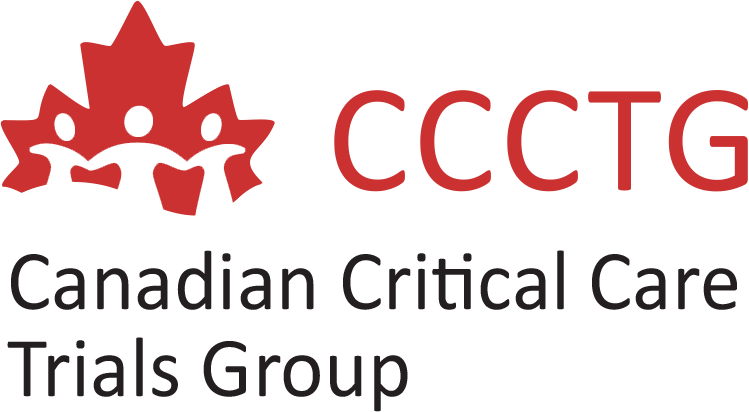In 2016, Dr. Jennifer Tsang established an innovative ICU Research Program in the St. Catharines Site’s 14-bed ICU, providing patients in the local region with access to novel and potentially effective therapies. Since the inception of the program, Dr. Tsang and her team have enrolled more than 1,500 patients in over 15 research studies. The program was recognized internationally in 2021 with a Leading Practice accreditation.
![]()

Contents
Mentoring Community
Through CCIRNet and the Toolkit, we aim to grow a nurturing environment for current and future community hospital researchers in Canada.
If you have questions about starting or building a research program at your community site, we would be happy to hear from you.
Additionally, if you have ideas to suggest for how we can improve the CCIRNet Toolkit, we would be grateful if you would share your feedback.
We started our ICU research program at William Osler Health System in 2017. I quickly discovered that the learning curve was going to be very steep and was delighted to be able to trade advice about what to do (and what not to do) with Jen Tsang. In the first year of our research program, we enrolled for one observational study and one clinical trial. Although the studies went well, the program ended the year in the red. After an 8-month hiatus we were able to re-start our program by combining our research coordinator team with those of other departments and we have been up and running ever since. In the past 3 years, we have been involved in 12 multi-centre studies in the ICU, including multiple COVID-19 trials, and have also expanded our program to include ward-based COVID-19 studies.
Dr. Anna Geagea is an ICU physician at North York General Hospital. She took on the Critical Care Physician Research lead role at the beginning of the pandemic, in January 2020.
She supported the growth of the ICU research program that had already been established a few years prior. She successfully led multiple COVID-19 related trials in the ICU and COVID-wards in addition to the continuation of multiple large non-COVID ICU trials that had been launched prior to the pandemic.
Her focus, with the support of the CCCTG, is to increase research capacity in non-academic, community hospitals and ICUs. She is part of the Canadian Community ICU Research Network (CCIRnet) and the Community Acute & Critical Care Working Group in the Networks of Networks to actively seek solutions to expand the current community hospital research group. Her goal is to encourage other community hospitals to start research programs and guide them on how to build a solid and sustainable program. She participates in ongoing collaboration between academic and non-academic environments to promote durable solution to bridge the current gap in community hospital research.
Patrick Archambault is a Canadian emergency physician, critical care specialist, and clinical epidemiologist. He is a Fellow of the Royal College of Physicians of Canada (FRCPC) certified in Emergency Medicine (2005, Université Laval (UL)) and Critical Care Medicine (2007, University of Ottawa). He obtained a masters in clinical epidemiology in the FRCPC Clinician Investigator Program at UL (2007). He completed a Canadian Health Services Research Foundation fellowship (2008-2010) in knowledge translation in the area of trauma care. After completing a four-year Fonds de recherche du Québec - Santé (FRQS) funded Junior 1 Clinical Scholar research program (2012-2016) and a four-year Canadian Institutes of Health Research (CIHR) Embedded Clinician Scientist funded research program (2016-2020), he is now leading a four-year FRQS funded Senior Clinical Scholar research program (2020-2024).
His career as an embedded clinician scientist and professor at UL in the Department of Family Medicine and Emergency Medicine is now dedicated to knowledge translation research, supporting the implementation of a learning healthcare system and training a new cadre of clinicians, students and decision makers that will support knowledge generation and sustainable healthcare improvement. He works as a clinician-scientist in the ED and ICU of the Hôtel-Dieu de Lévis in the Province of Québec. He has built an integrated research team that works in collaboration with patient partners, hospital administrators, provincial policy makers and fellow clinicians in leading multiple different clinical trials and implementation science research projects.
I am a Critical Care specialist from Spain who came to Canada in 2014 to pursue additional research training. I completed my Critical Care Specialty at Hospital Universitario Puerta de Hierro (Universidad Autonoma de Madrid). Critical Care in Spain is a full primary specialty (no background specialty), it is a 5-year program with a mixed training between Medicine and Anesthesia and 2.5 years in Critical Care.
After finishing my Critical Care residency, I worked as an attending physician at Hospital Universitario de Getafe, with Dr. Andres Esteban’s group. Currently I am working at the University of Manitoba. I completed my Master of Science in Medicine at Universidad Autonoma de Madrid in 2013 and I am currently completing a PhD in Medical Microbiology at the University of Manitoba under Dr. Anand Kumar’s supervision.
I have joined Drs. Zarychanski, Kumar and Fergusson in the HALO International Trial where I will facilitate international collaboration and will serve as a liaison with Spanish-speaking colleagues and sites participating in the HALO clinical trial.
Rosa Myrna Marticorena RN PhD is the Manager of Non-Oncology Research at Osler and is responsible for all ICU and acute care studies. She works with a team of 3 research coordinators, who are responsible for cardiology, ICU, nephrology and general medicine studies. Rosa has many years of experience in both academic and community hospital research.
Lisa Patterson is the Critical Care Research Coordinator at Niagara Health and is responsible for all ICU studies and manages a team of 3 research assistants. Since 2020, she has led the NH ICU Research Experience Program, providing over 25 undergraduate, graduate and medical students with career exploration opportunities while contributing to health research in the Niagara region.
Next: Recommended Articles ➨
